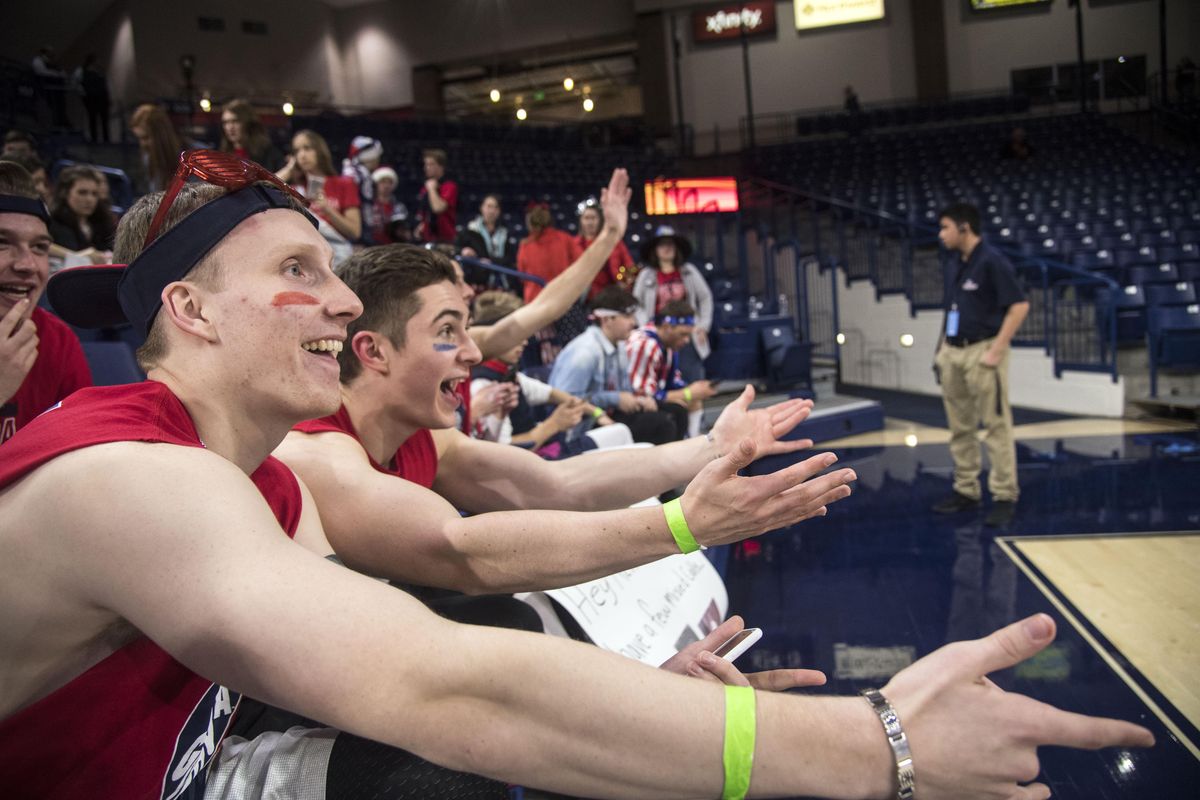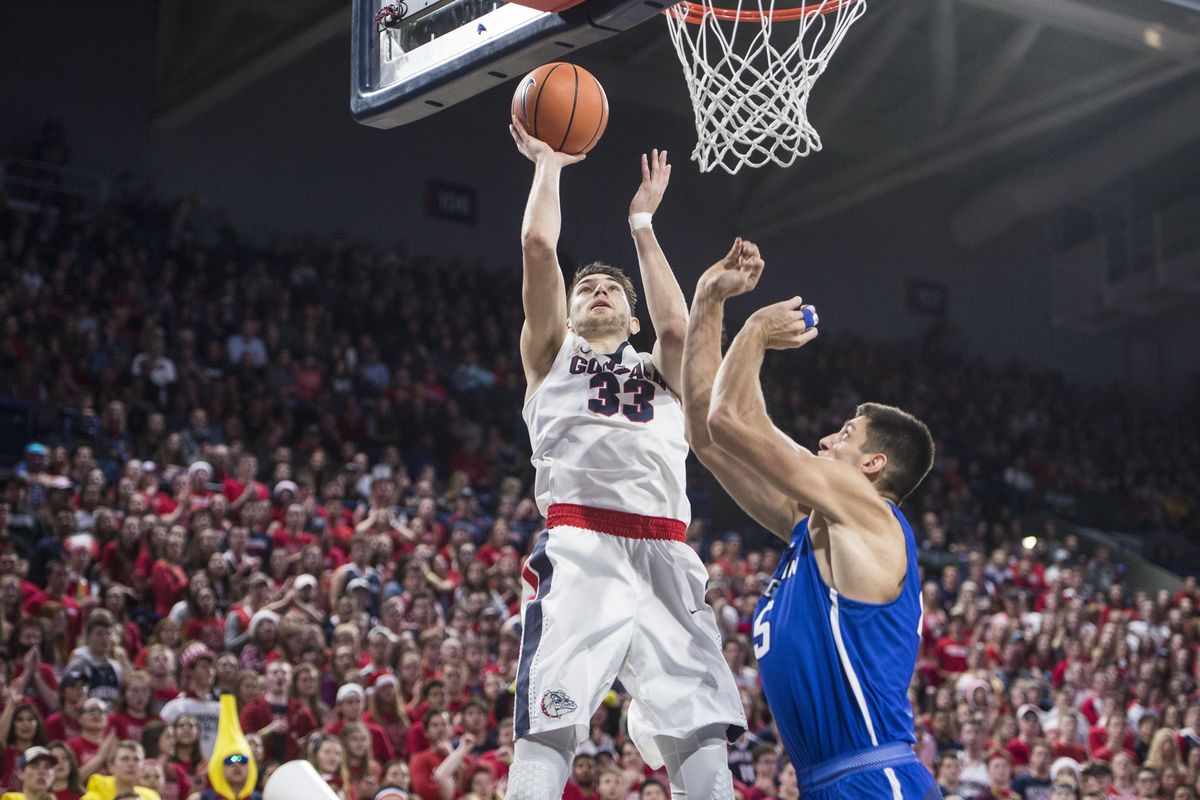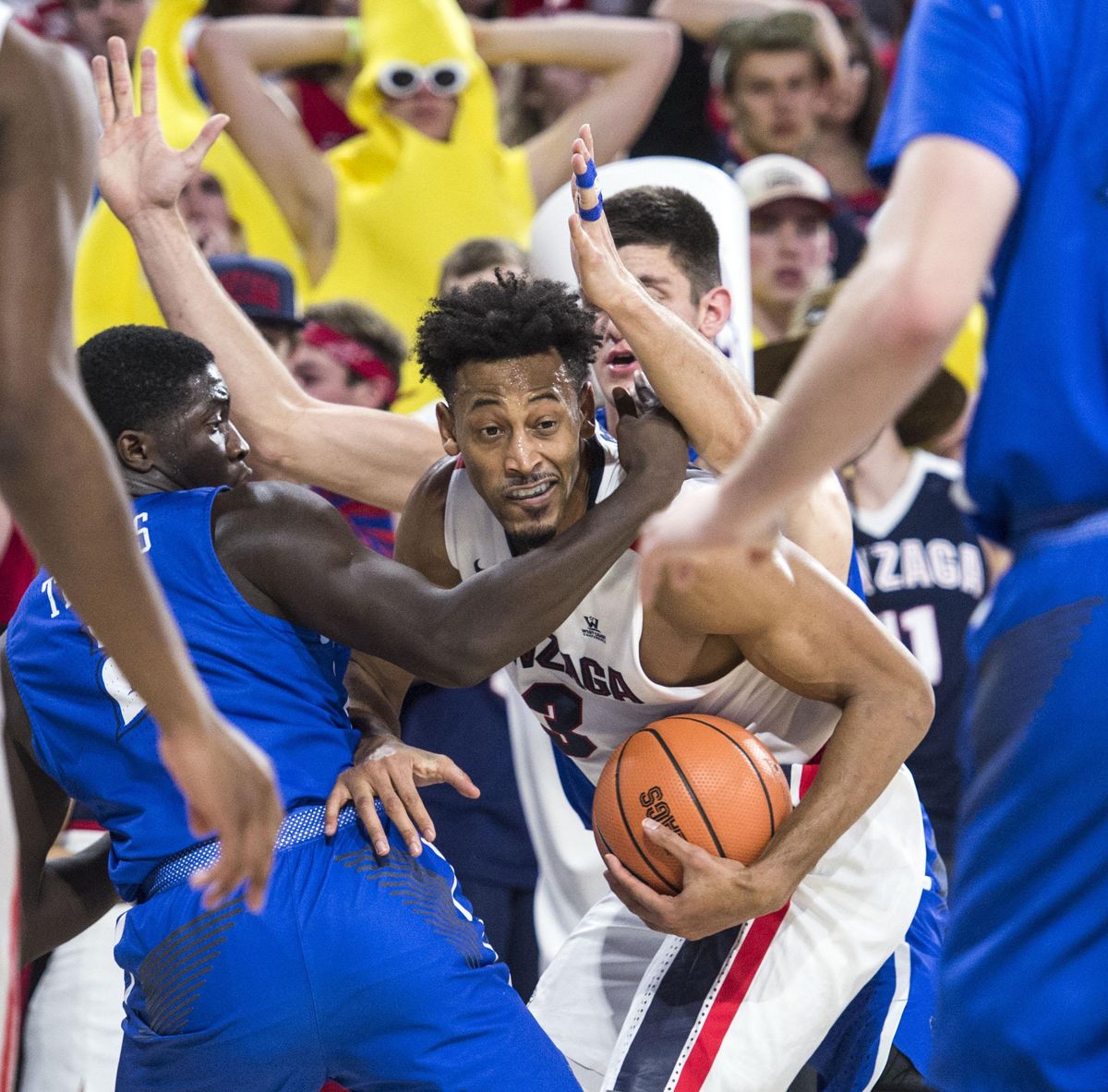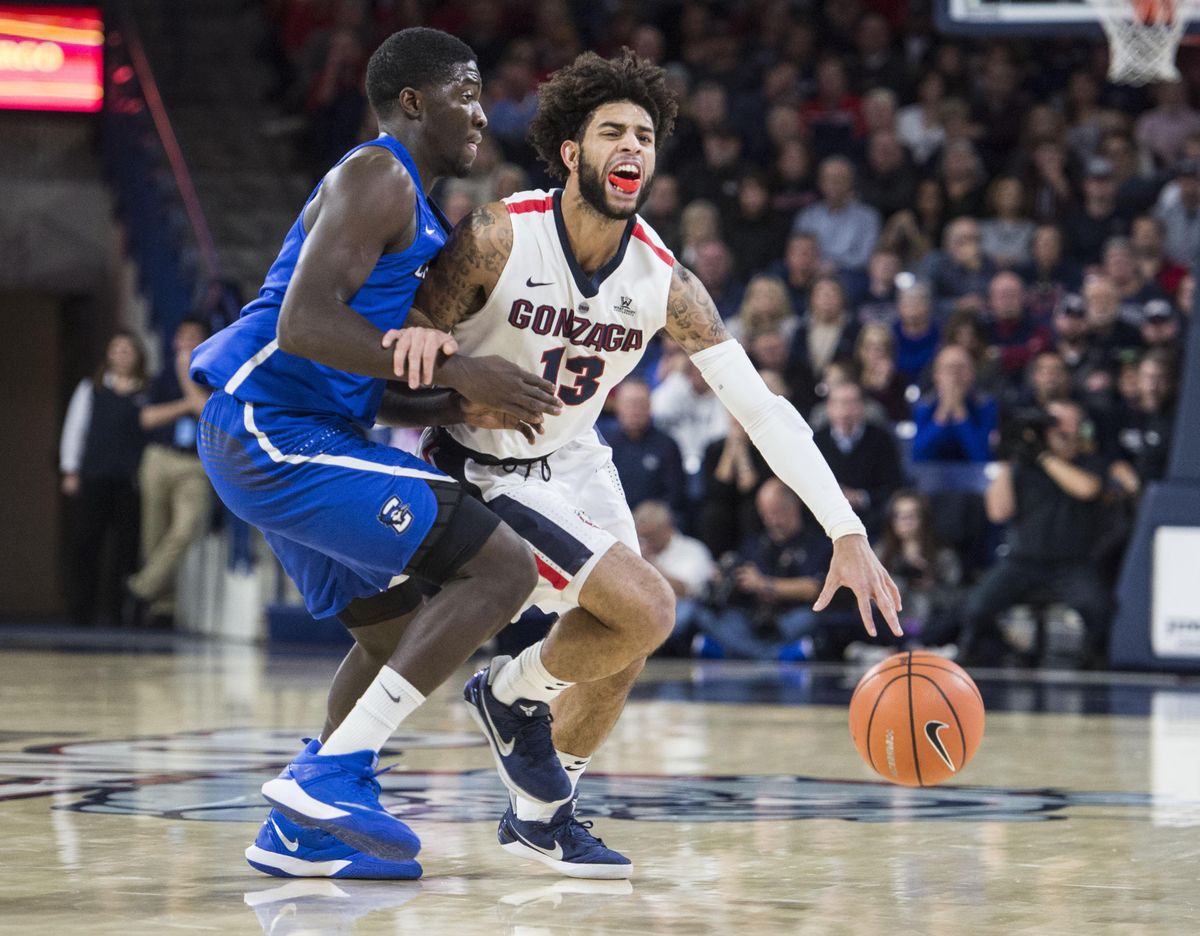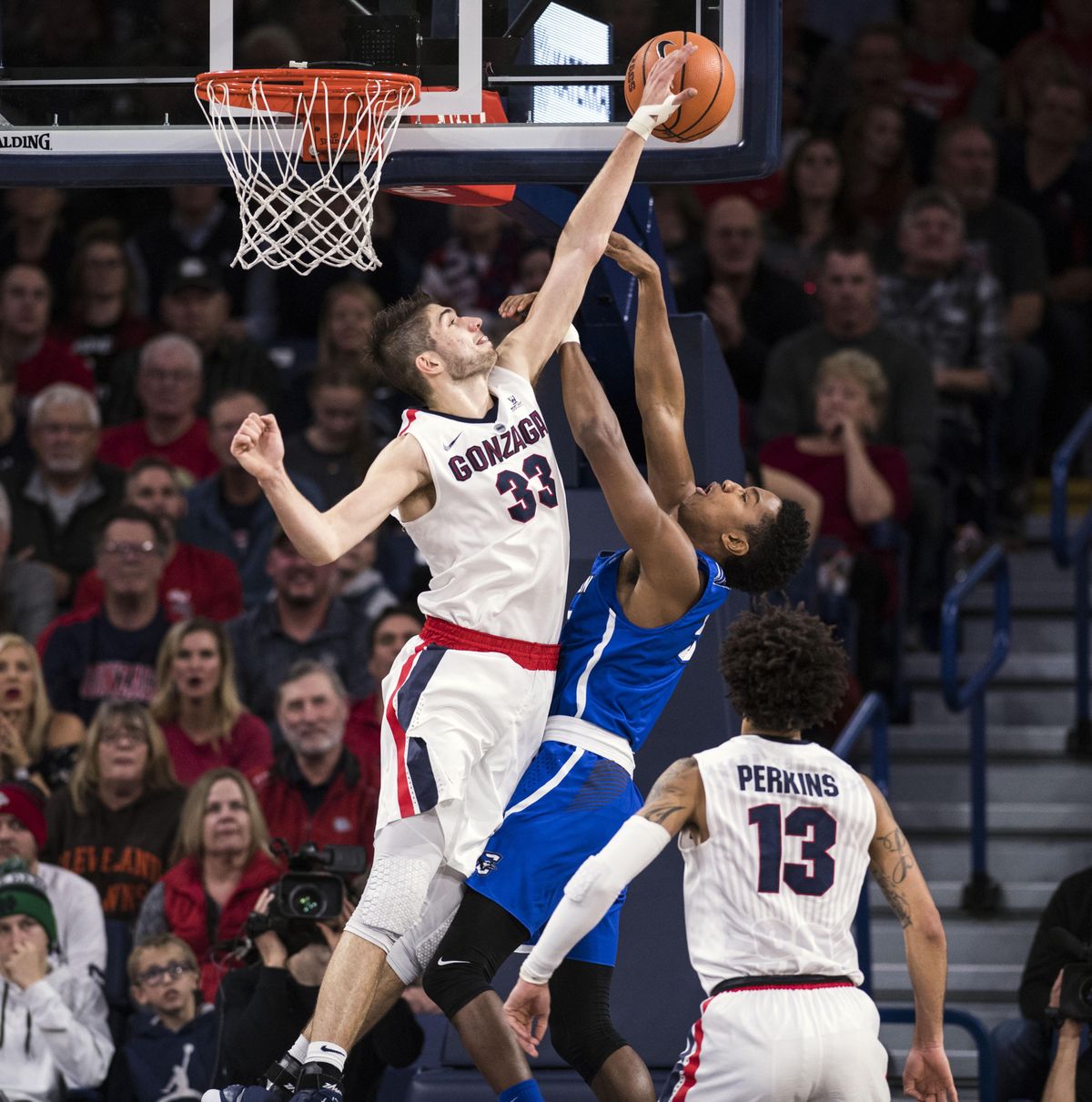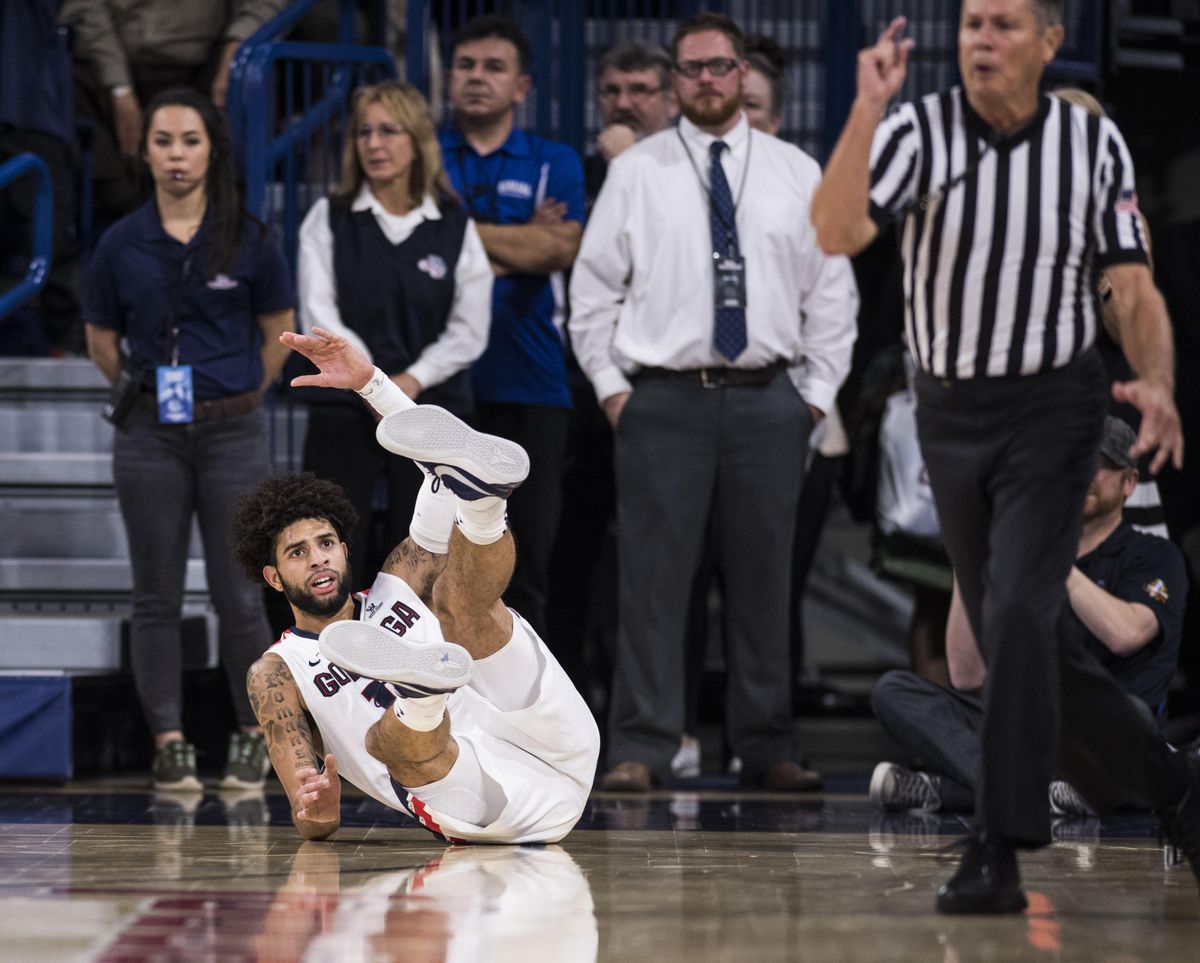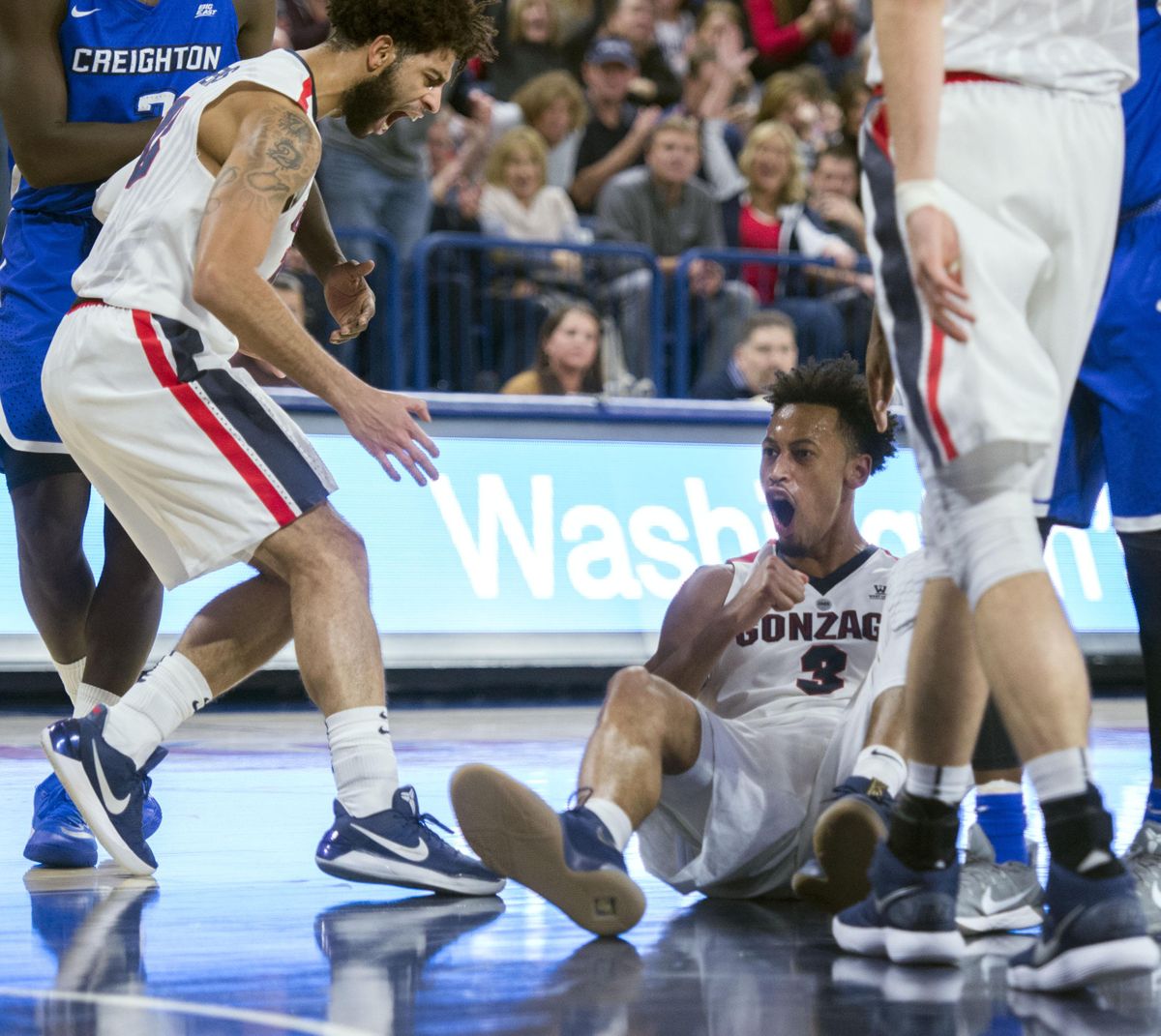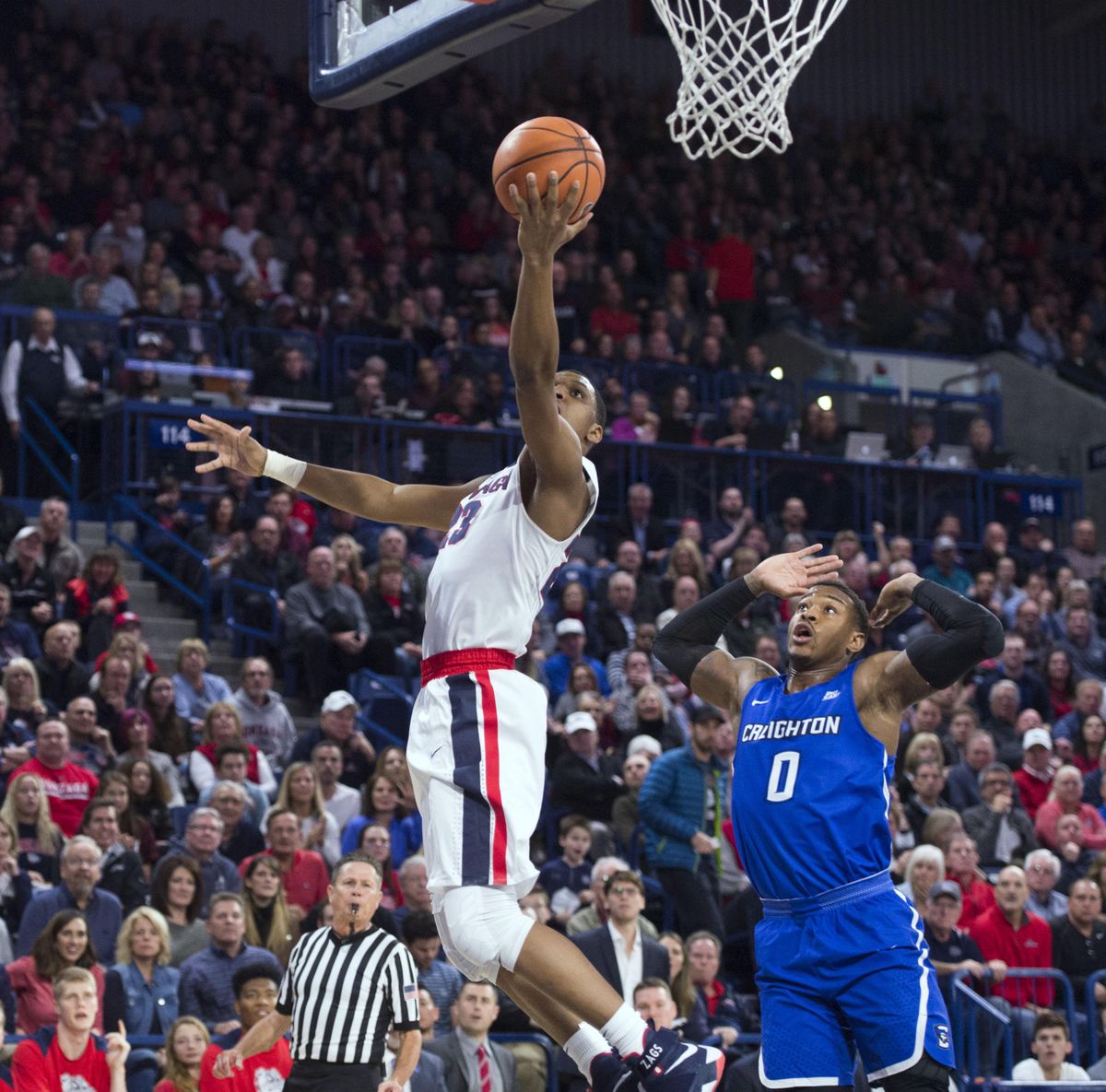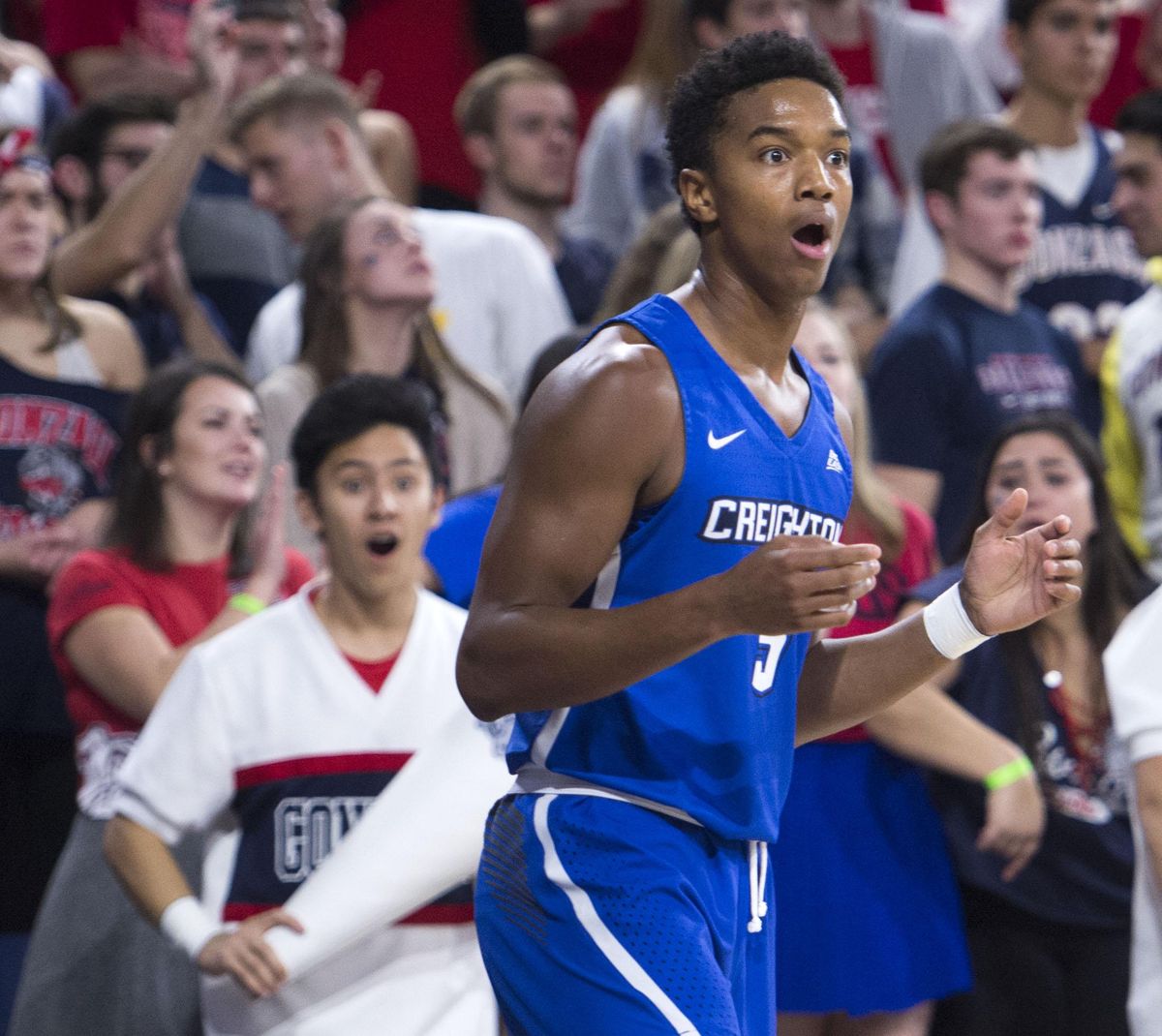TV Take: ESPN crew struggled throughout Gonzaga-Creighton game
Gonzaga forward Killian Tillie shoots over Creighton forward Martin Krampelj , Friday, Dec. 1, 2017, in the McCarthey Athletic Center. (Dan Pelle / The Spokesman-Review)Buy a print of this photo
The 15th-ranked Gonzaga Bulldogs rallied in the second half to run away from 25th-ranked Creighton on Friday, winning 91-74 at the McCarthey Athletic Center.
It’s too bad others involved with the game that was broadcast into our homes couldn’t find their form after halftime as well.
What they saw …
For such a high-profile early season nonconference matchup, the ESPN2 announcing crew of play-by-play announcer Eric Rothman and analyst Sean Farnham had their struggles.
Wait, that’s not fair.
Farnham was fine. His partner, however, not only made some missteps, he actually “corrected” his partner on a play he had wrong.
To explain the genesis of the slip, we have to explain the most obvious mistake on the part of the officiating crew. The group, Randy McCall, Mike Scyphers and Shawn Lehigh, are all veterans – and all were a little off their game as well.
With about 11 minutes left in the first half and the Zags doing everything they could to derail a Creighton offense that was on track, Silas Melson forced an errant pass into the back court. He raced after it. And won. Grabbing it, he quickly passed to Josh Perkins, who rose up and hit a 3-pointer.
One problem.
McCall had blown his whistle. He was emphatically signaling a backcourt violation that hadn’t occured. He must have mixed up the teams.
But the inadvertent whistle cost the Zags 3-points – and Rothman some reliabiliy. He thought Melson had made the shot. That happens.
But he doubled-down early in the second half when Farnham, trying to explain Josh Perkins’ poor shooting night, mentioned it would have helped if he had been able to count that 3-pointer.
Rothman interjected, incorrectly, it was Melson who hit the disallowed shot.
That was symptomatic of a game in which the duo seemed more inclined to talk about anything but the on-court action at times. Early on it caused them to miss some key elements of a game Creighton had in control.
The Zags, sliced apart by the Bluejays’ motion, switched from man to zone with 12 minutes, 35 seconds left in the first half, after 6-foot-11 freshman Jacob Larsen made his first appearance off the bench.
Almost 2 minutes later, Rothman noticed, said they were playing zone and that it was the “first time we’ve seen that tonight.” Other than about four earlier possessions, of course.
And Perkins’ problems – he took just two shots and scored only four points – were made even worse when he sat the final 6:37 of the first half after picking up his second foul.
The call, by Scyphers, was for an illegal screen that escaped the announcers’ notice. And it was a ticky-tack call made even worse when, 3 minutes later, Scyphers let a blatant illegal screen slide in front of the GU bench. It led to a Bluejays 3-pointer.
What we saw …
It wasn’t all bad for Rothman, who let us know with 11 minutes left Perkins had been warned to quit arguing with the officials.
It’s that type of nugget that gives added value to watching at home. And Farnham, the former UCLA player who is in Spokane often, did a solid introductory standup in Gonzaga’s tent city. He also praised the Kennel Club, saying, “they are as passionate as any student body in the country.”
He must not have been at the Wednesday game with Incarnate Word.
But it was hard to find the same positive nuggets from the officiating, from the inadvertent whistle to questionable charge calls to a late and-one called by Lehigh that was waved off, rightfully so, after a discussion with Scyphers.
Though it would have been nice if there had been some discussion about it.
And maybe some as well about the Corey Kispert’s absence. Gonzaga’s starting freshman guard, who is averaging 10.4 points per game, sat on the bench in street clothes, his left foot in a boot.
His injury was not mentioned until 2 minutes into the game and then was ignored the rest of the way. There is a counterpoint that could have been discussed as well.
If Kispert had been healthy, Zach Norvell would not have started and probably would not have played a career-high 34 minutes. Or had a career-high 21 points on 7-of-13 shooting.
It’s a subtle point – but a crucial one. And, like many things, it was missed.

